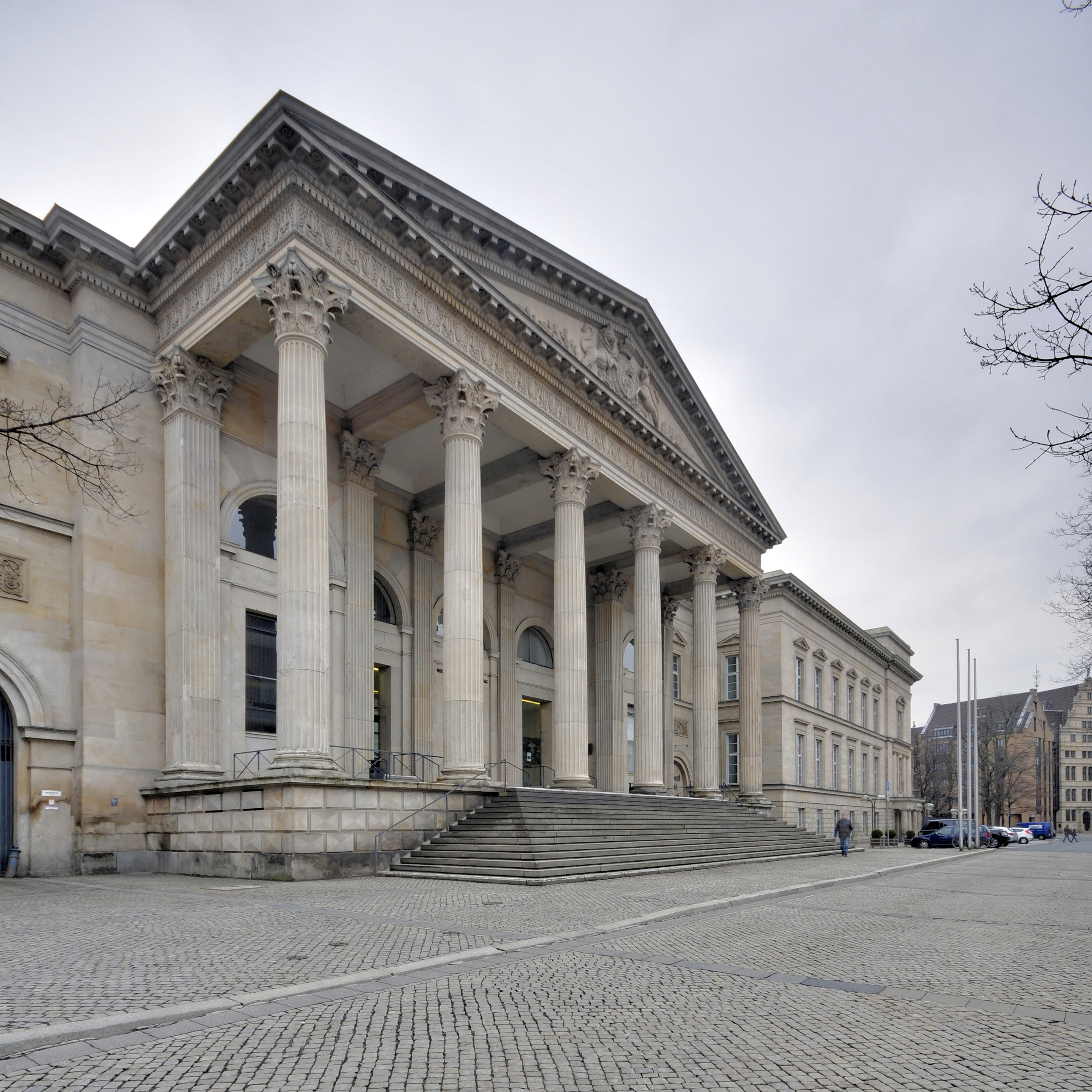Lower Saxon Landtag on:
[Wikipedia]
[Google]
[Amazon]
The Lower Saxon Landtag () or the Parliament of Lower Saxony is the state diet of the German state of Bundesrat. Lower Saxony
 The Landtag is situated in the Leineschloss, a former residence of the kings of
The Landtag is situated in the Leineschloss, a former residence of the kings of
Official english Webpage of the Landtag
{{Authority control
Lower Saxony
Lower Saxony is a States of Germany, German state (') in Northern Germany, northwestern Germany. It is the second-largest state by land area, with , and fourth-largest in population (8 million in 2021) among the 16 ' of the Germany, Federal Re ...
. It convenes in Hanover
Hanover ( ; ; ) is the capital and largest city of the States of Germany, German state of Lower Saxony. Its population of 535,932 (2021) makes it the List of cities in Germany by population, 13th-largest city in Germany as well as the fourth-l ...
and currently consists of 146 members, consisting of four parties. Since 2022 the majority is a coalition of the Social Democratic Party and the Greens, supporting the cabinet of Minister-President Stephan Weil (SPD).Landtag building
 The Landtag is situated in the Leineschloss, a former residence of the kings of
The Landtag is situated in the Leineschloss, a former residence of the kings of Hanover
Hanover ( ; ; ) is the capital and largest city of the States of Germany, German state of Lower Saxony. Its population of 535,932 (2021) makes it the List of cities in Germany by population, 13th-largest city in Germany as well as the fourth-l ...
. After its destruction in World War II
World War II or the Second World War (1 September 1939 – 2 September 1945) was a World war, global conflict between two coalitions: the Allies of World War II, Allies and the Axis powers. World War II by country, Nearly all of the wo ...
it was rebuilt from 1957 to 1962. Thus, from 1947 to 1962, the parliament of Lower Saxony convened in a convention centre ( Stadthalle Hannover).
Current composition
After the elections of 9 October 2022 the composition of the Lower Saxony Landtag is as follows: Elections are conducted using a proportional representation system, with a minimum of 5% vote share to receive any seats in the Landtag. Currently, the Social Democratic Party and the Greens have a government with 81 out of 146 seats (55.5%).Presidents of the Landtag
So far, the presidents of the Landtag of Lower Saxony have been: * 1946–1955 Karl Olfers, Social Democratic Party (SPD) * 1955–1957 Werner Hofmeister, German Party (DP)/ Christian Democratic Union (CDU) * 1957–1959 Paul Oskar Schuster, DP/ CDU * 1959–1963 Karl Olfers, SPD * 1963–1967 Richard Lehners, SPD * 1967–1974 Wilhelm Baumgarten, SPD * 1974–1982 Heinz Müller, CDU * 1982–1985 Bruno Brandes, CDU * 1985–1990 Edzard Blanke, CDU * 1990–1998 Horst Milde, SPD * 1998–2003 Rolf Wernstedt, SPD * 2003–2008 Jürgen Gansäuer, CDU * 2008–2013 Hermann Dinkla, CDU * 2013–2017 Bernd Busemann, CDU * 2017–2022 Gabriele Andretta, SPD * 2022 , SPDElections
* 1986 Lower Saxony state election * 1990 Lower Saxony state election * 1994 Lower Saxony state election *1998 Lower Saxony state election
The 1998 Lower Saxony state election was held on 1 March 1998 to elect the members of the 14th Landtag of Lower Saxony. The incumbent Social Democratic Party (SPD) government led by Minister-President Gerhard Schröder was returned with an increas ...
* 2003 Lower Saxony state election
The 2003 Lower Saxony state election was held on 2 February 2003 to elect the members of the 15th Landtag of Lower Saxony. The incumbent Social Democratic Party of Germany, Social Democratic Party (SPD) majority government led by Minister Presiden ...
* 2008 Lower Saxony state election
* 2013 Lower Saxony state election
* 2017 Lower Saxony state election
* 2022 Lower Saxony state election
References
External links
Official english Webpage of the Landtag
{{Authority control
Lower Saxony
Lower Saxony is a States of Germany, German state (') in Northern Germany, northwestern Germany. It is the second-largest state by land area, with , and fourth-largest in population (8 million in 2021) among the 16 ' of the Germany, Federal Re ...
Landtag of Lower Saxony
The Lower Saxon Landtag () or the Parliament of Lower Saxony is the state diet of the German state of Lower Saxony. It convenes in Hanover and currently consists of 146 members, consisting of four parties. Since 2022 the majority is a coalition ...
Unicameral legislatures